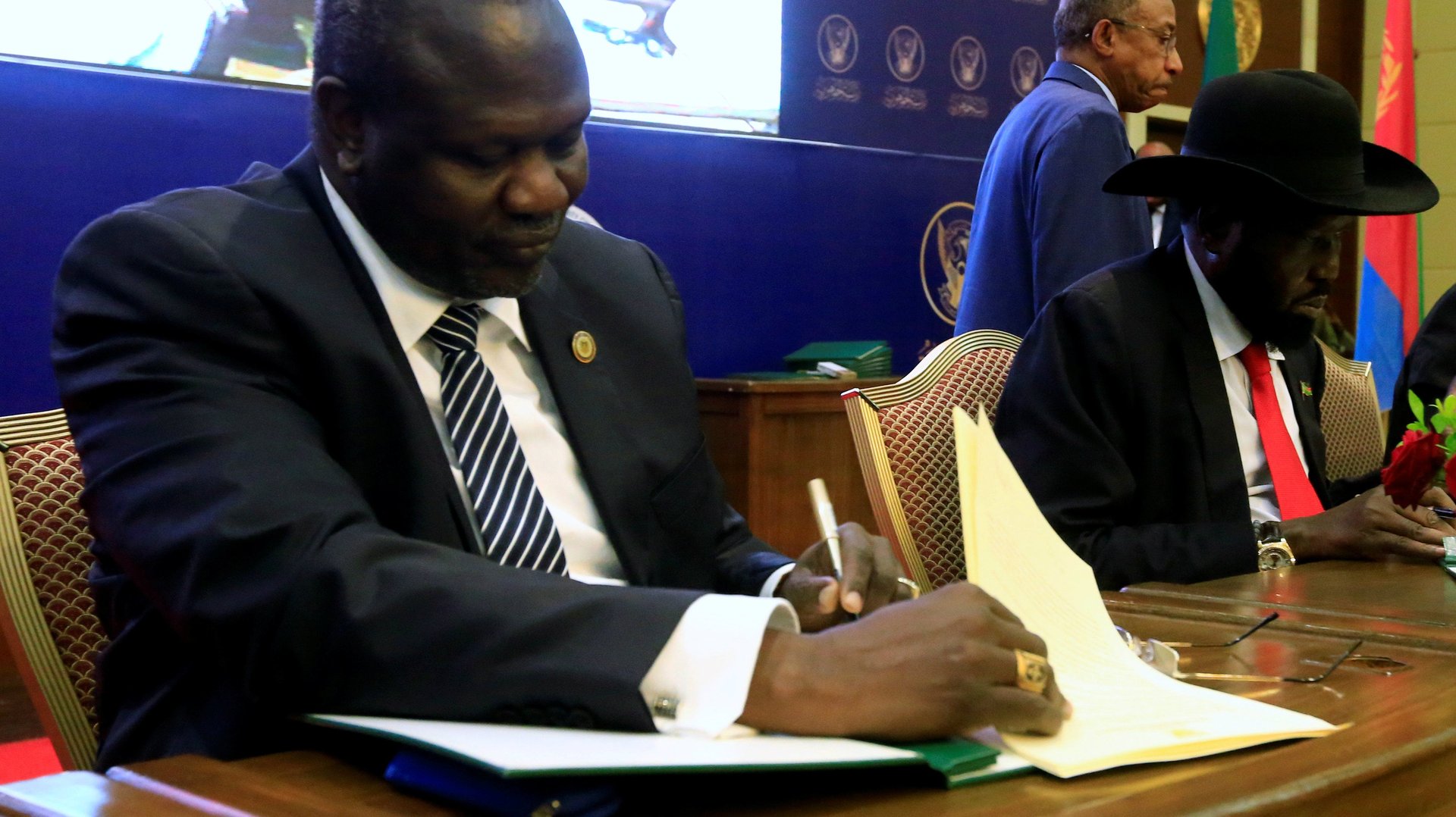The world’s youngest country is close to ending its brutal five-year civil war
South Sudan’s brutal civil war may finally be coming to an end after rival leaders agreed a new peace deal.


South Sudan’s brutal civil war may finally be coming to an end after rival leaders agreed a new peace deal.
The deal, signed by president Salva Kiir and rebel leader Riek Machar, sees the government agree a power-sharing agreement with the main rebel group. As part of the deal, Machar will return as vice-president. The deal was brokered by the Intergovernmental Authority on Development, an eight-country east African trade bloc.
But it’s not the first peace deal both leaders have agreed. Previous deals to end hostilities have been agreed and then breached leading to thousands of people being killed as severe tensions peaked between local ethnic groups. Millions of South Sudanese have been displaced since the war first broke out in 2013.
However, president Kiir says the new peace deal which lays the basis for a more concrete peace accord will not “collapse” mainly because, unlike others, it was not “forced” on the leaders. The deal also maps out the country’s immediate future: in the first three months after the final peace accord is signed, the rival leaders will form a transitional government which will lead the country for another 36 months before elections possibly hold.
The latest peace deal has been met with jubilation from young South Sudan citizens who are hoping for normalcy and significant economic progress while peace reigns. Over the past five years, amid the frustrations of unemployment and oppression by law enforcement agents, young South Sudanese have had to find different ways to cope with the war, including partying in daytime.